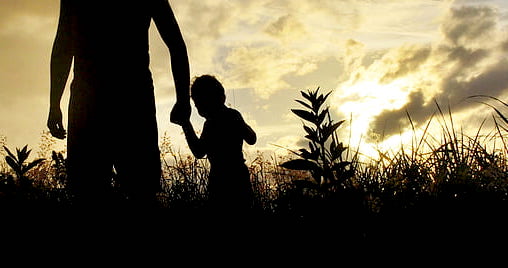For the past 18 years, I have been involved in what is probably the most challenging and rewarding aspect of my life, namely parenting. Anyone who influences others one-to-one is, in effect, parenting, so we can all appreciate the joys and frustrations that are part of it, whether we are involved with our own children or with the world at large. The challenge of raising children is enormous and humbling. Just when I pride myself on mastering the parenting skills at one stage of my youngest child’s life, she’s inevitably well on her way out of it and entering the next stage. Usually this requires that our relationship be entirely renegotiated or her development will be undermined.
Knowing when to stick to the old rules and when to seek new wisdom, when to protect and when to pull back, when to demand and when to accept is only the beginning. For even after we understand the keen sense of timing parenting requires, we must still grapple with the how-to’s themselves. A small case in point: How to juggle love and discipline, the two most important gifts a parent can give a child. How often do I painstakingly set boundaries for my child’s behavior which are appropriate for her age and understanding, and then carefully explain to her the consequences if she disobeys, only to watch her seconds later lithely step over the boundary to test my limit? …At what point does our love take over to address our child’s immediate need, and at what point do we enforce the structure?
Our job is further complicated when we must consider our family as a whole. Most of us aspire to treat each of our children as an individual and consider his or her unique emotional needs. Yet by choosing this course of action, we run the risk of being accused of playing favorites, and getting the refrain, “It’s not fair” trumpeted in our ears. From the child’s view, however, it often really isn’t fair…Sometimes, no matter how much effort we put into balancing our discipline with our love, nothing seems to work. This is often the case in raising adolescents, who typically resist authority, particularly that of their parents. How can a parent deal with this unusually tense time? Are there any guidelines?
LOOKING FOR GUIDANCE My husband and I are presently parenting children ranging in age from two to eighteen and, because of this, we are constantly searching to refine and hone our parenting skills. It’s an all consuming job. I also study and teach college level Biblical studies and, interestingly enough, I find that my involvement in these two fields often converges.
In specific, the Hebrew Bible, our Torah, offers me an especially lucid guide for parenting. Throughout the Torah, God interacts with humankind in a variety of ways. God encourages, blesses, sets limits, responds to wrongdoing, protects and guides. The Torah also describes God when God expresses anger and disappointment with humankind. The lessons leap from the Torah: God is a great parent. In today’s times it may be radical to suggest there was a Bible for parenting pre-Dr. Spock, but if we allow ourselves the liberty of playing with this thesis, I think we may find it extremely illuminating.
A precedent for using God as a model for our own behavior can be found in Leviticus [19:2], where God invites us to be like God. “You should be holy because I am holy.” The Midrash, an allegorical commentary on the Torah, expounds on this idea: “As God is merciful, so should we be merciful, as God is gracious, so should we be gracious.” The human being achieves his or her peak potential by being as similar to God as possible – that is, by imitating God. So too in parenting. Yet in order to use God as our model to imitate, we must first identify the places where God acts as a parent.
Throughout the Torah, God’s parenting role can be seen in a variety of ways. In the opening passages of Genesis, God is described creating the human race, thereby becoming the first Parent. Indeed, just as children resemble their parents, so the Torah tells us we are created “in God’s image” [1:27]. Our sages tell us this “image” is not physical, but describes our potential for spiritual greatness. Through the subsequent chapters of the Torah we see God parenting all of humankind, including Jews and non-Jews, prophets, kings and simple people, the good and the wicked. In each of these varied relationships between God and humankind, we see the hallmark of exemplary parenting: An involvement that is unconditional and never-ending.
Our next class will detail God’s parenting techniques, as set forth in the Torah, and will address parenting issues of handling adolescents, showing discipline vs. rigidity, judging fairly, and more.
Women in Judaism, Copyright (c) 2000 by Mrs. Leah Kohn and ProjectGenesis, Inc.


